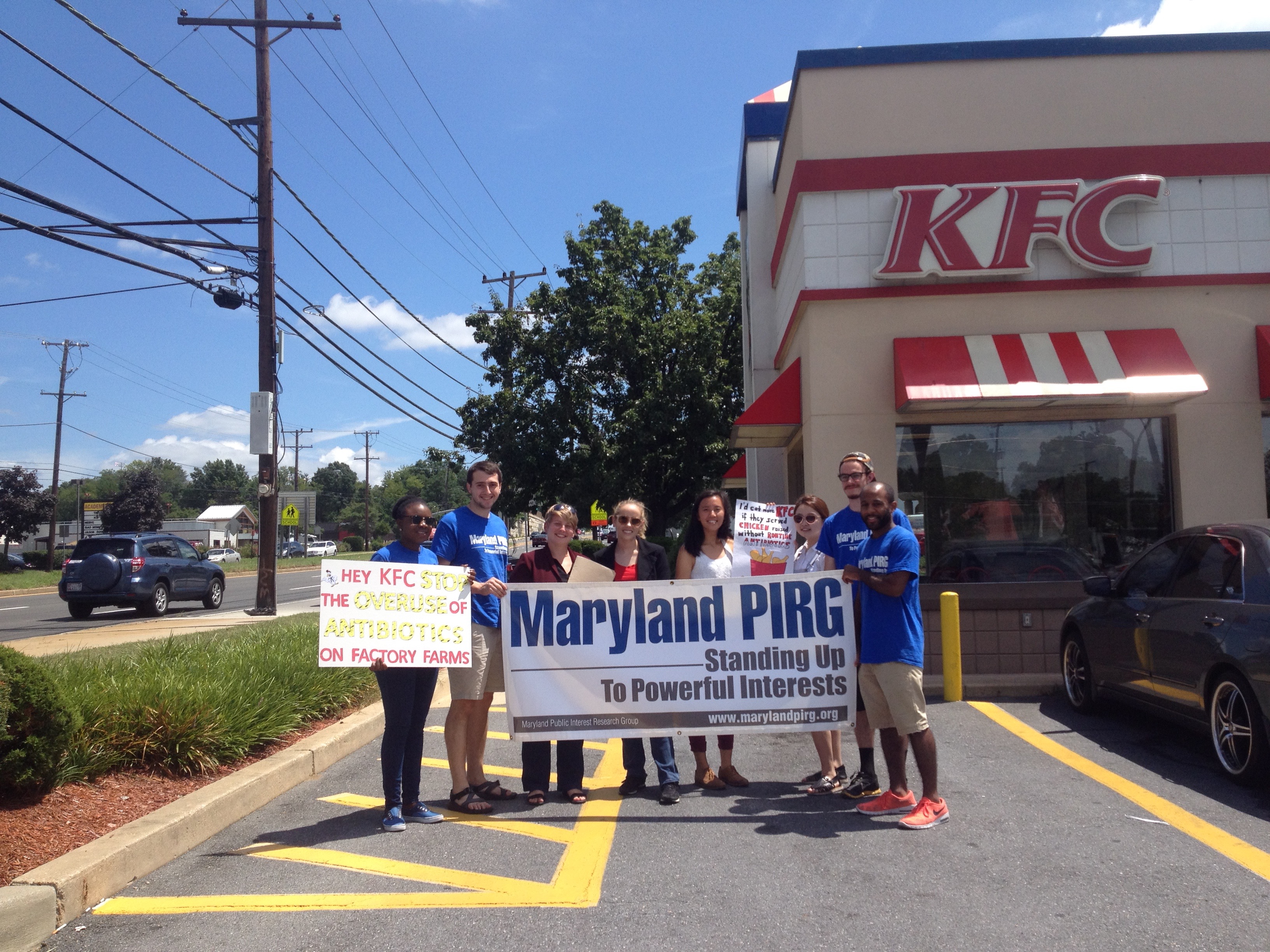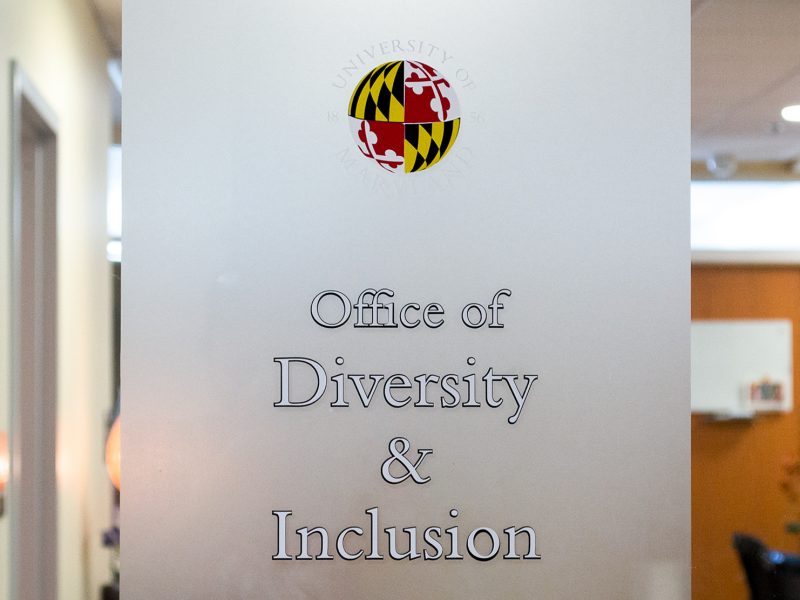By Rachel Kuipers
For The Diamondback
State advocacy group Maryland PIRG delivered a petition Thursday afternoon with thousands of signatures to a Kentucky Fried Chicken restaurant, located in the Berwyn Heights, in an effort to stop the chain from serving antibiotic-fed chicken.
The chicken served at KFC comes from farms that feed their livestock antibiotics on a daily basis so they will “grow faster, produce more meat and avoid illnesses,” according to a 2010 Centers for Disease Control and Prevention report. This practice results in a “serious threat to human health” and can also increase bacterial resistance to antibiotics and decrease the effectiveness of the drugs in humans, according to the CDC.
The petition, containing 3,175 signatures from Maryland residents, references the recent changes in other chain restaurants, specifically McDonald’s and Subway, and calls on KFC to follow suit. Nationally, more than 87,000 signatures were collected over the issue.
MaryPIRG, a University of Maryland group with similar goals to Maryland PIRG, is also fighting the use of antibiotics in animal feed this fall. The group took on the antibiotics campaign in the fall of 2015 and will return to the campaign this fall.
The group is trying to show large restaurants that people care about what’s going into their bodies, said junior Ary Papadopoulos, MaryPIRG’s incoming antibiotics campaign coordinator and a public health science major.
In an email, a KFC spokesperson said the restaurant’s antibiotics position “is currently being reviewed to determine the viability for our suppliers to go beyond the FDA guidelines for antibiotics usage.”
The restaurant works to limit the use of antibiotics “important in human medicine” on the suppliers’ farms, according to the KFC website. The company says by 2017 those antibiotics will be used simply to maintain chicken health under the supervision of a licensed veterinarian, and their use for growth promotion isn’t allowed.
Major companies like Tyson and Perdue have given up these practices, said Juliana Bilowich, Maryland PIRG’s public health organizer. The group is targeting KFC, though, because it’s one of the “last big giants to move on this campaign,” Bilowich said.
MaryPIRG gives students a voice on issues, like this, “when they might not feel that they have one,” said junior Sara Carter, incoming MaryPIRG president and a government and politics major.
“Part of the purpose of MaryPIRG is to fight for the interest of the public against special interest,” Carter said. “The prevalence in the overuse of antibiotics on factory farms is harmful to the public, but it’s still in use by factory farms and drug companies that are behind it.”
Because restaurants are more likely to cave to consumer interests than factory farms are, the group is appealing to them in hopes that if the restaurant changes its practices, then factory farms will follow suit.
This worked with Perdue, Bilowich said. When Panera Bread adopted a stronger antibiotics policy, their supplier, Perdue, was encouraged to change their own antibiotic-use policies in order to keep the business, she noted.
Though more restaurants and farms are abandoning antibiotic practices, sophomore Julia Zhen, an information systems and supply chain management major, said this is still a “huge” problem.
“A lot of people eat meat … and this is a huge problem that affects everyone,” Zhen said. “Dropping the petition off at the KFC was a way of saying to the company, ‘these are consumers and they care that you’re using routine antibiotics on the farm.'”



